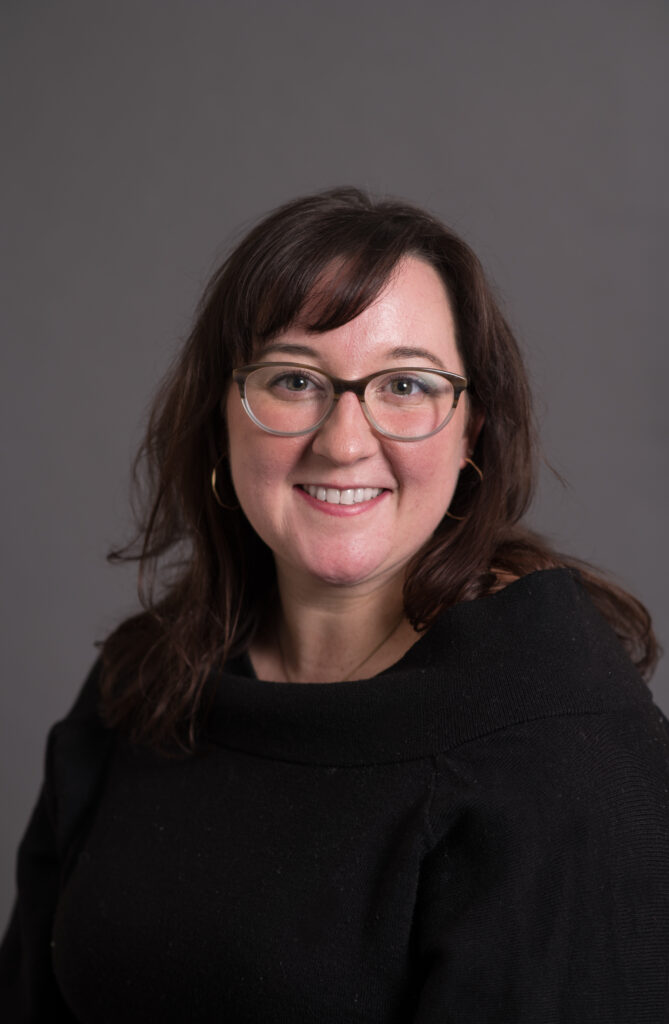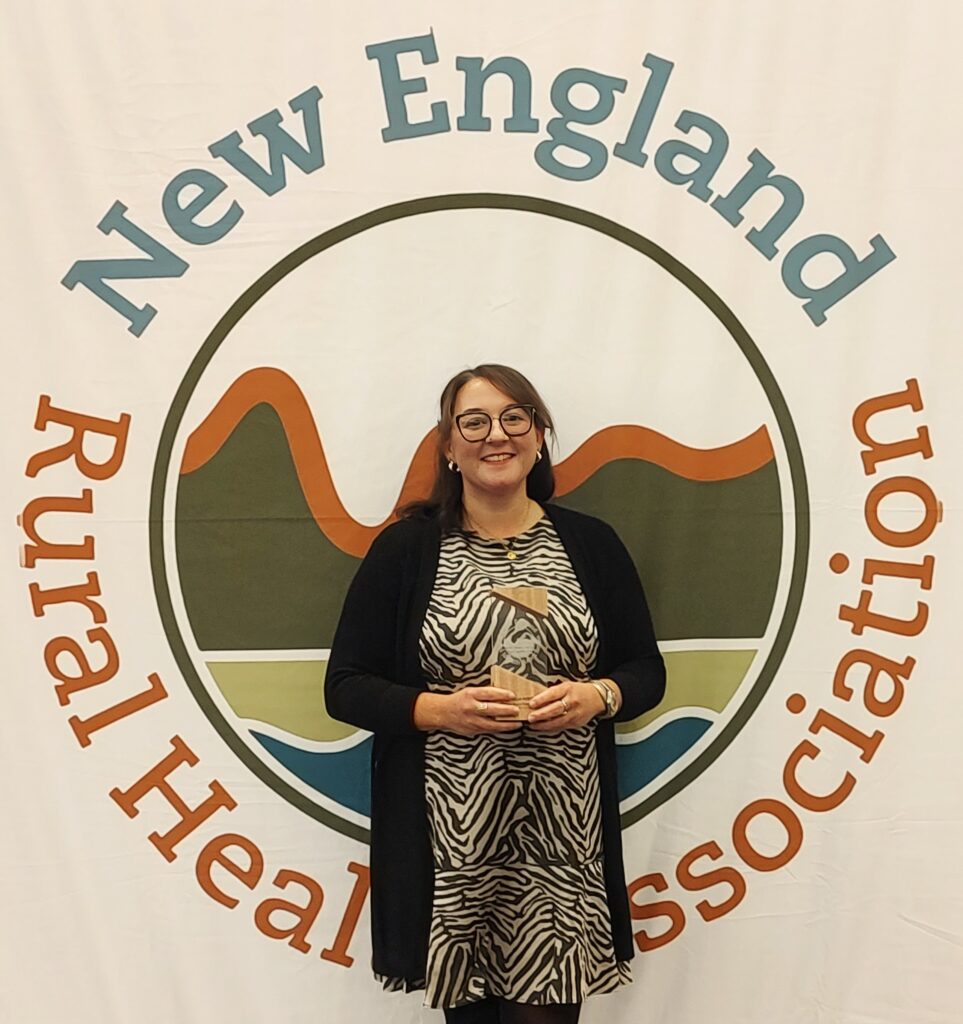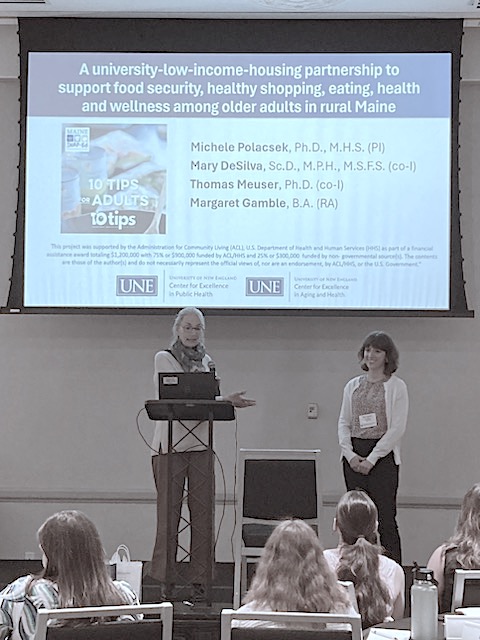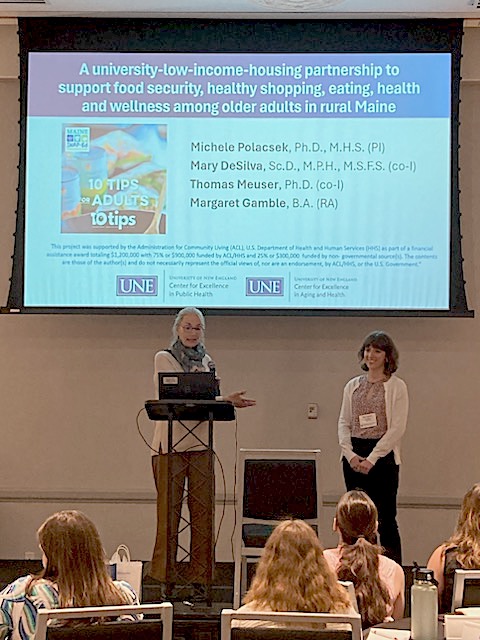Colleen Fuller, MPH, Research Associate, and Pamela Bruno, MPH, Senior Research Associate, at the Center for Public Health Practice, School of Public and Planetary Health along with colleagues from the Association of SNAP Nutrition Education Administrators (ASNNA), co-authored the “A SNAP-Ed Ethical Storytelling and Asset Framing Toolkit to Promote Public Health Practitioner Self-Efficacy,” in the journal Health Promotion Practice (https://doi.org/10.1177/15248399251388448). This Practice Note describes the development and content of a toolkit focused on practicing ethical community storytelling and constructing narratives based on community strengths or assets.
The toolkit described in the Practice Note was developed with colleagues from ASNNA and co-authored by Fuller and Bruno. The toolkit is based on the concepts of Ethical Storytelling and Asset-Framing, and includes instructions, templates, an implementation rubric, and examples of application. To view the Ethical Storytelling and Asset-Framing Toolkit, please visit: Ethical Storytelling & Asset-Framing: A Toolkit for Centering Equity when Communicating Programmatic Success
Micaela Maynard, M.Ed received the Rising Rural Star Award at this year’s New England Rural Health Association (NERHA) Conference in Groton, CT earlier this month. This award recognizes the dedication and profound impact of emerging leaders who are making significant strides in improving the health and well-being of rural communities across New England. Micaela serves on the NERHA Board of Directors and was accepted into the 2025 Cohort of Rural Health Leadership Institute earlier this year. She is the Program Manager for the Maine AHEC Scholars program in the Center for Public Health Practice, part of the School of Public and Planetary Health.


On Saturday, 4/12/25, Maine AHEC Network continued its collaboration with the USM Nursing Casco Bay Community Partnership Island Outreach program to host a health screening fair on Chebeague Island. Five first year UNE COM students who participate in the AHEC Care for the Underserved Pathways Scholars program braved a snowy April morning and chilly ferry boat ride to meet the Chebeague community.
Together with USM Nursing students, they provided supervised health screenings, including blood pressure checks, glucose and cholesterol screenings, hearing screenings, and shared some health promotion information at the island Community Center.
The partner organizers from Chebeague shared with the interprofessional team of students that their visit made an impact on the community. They noted that some people prefer not go off island for appointments, and that while there are people on the island who can do blood pressure checks, not everyone is comfortable doing so due to preferences related to privacy in a small community. They also remarked that the time students took to listen was much appreciated.
This is the second year Maine AHEC has partnered to produce this outreach event, and the island participants welcomed us back with baked goods, volunteer drivers to shuttle us to and from the ferry dock, and expressions of gratitude.
Michele Polacsek, Ph.D., M.P.H., professor of public health and director of UNE’s Center for Excellence in Public Health, is co-author on a just-published manuscript exploring the stigma associated with participation in the free school meal program.
Free school meals benefit resource-constrained families. However, many families in the do not apply to receive them and students may not eat school meals due to stigma they experience at school.
This analysis used qualitative data from a larger mixed methods study. The study included 66 parent interviews in California and Maine during the 2021-2022 school year when school meals were free for all students nationwide. Interviews explored parents’ meal application stigma, students’ school meal stigma, and opinions about the meals. Thematic analysis was used to systematically code and analyze all qualitative data.
Findings showed that parent stigma was associated with school meal applications and parents reported child stigma when participating in school meals. Parents reported less stigma for themselves and their children with the onset of free school meals.
Free school meal policies can reduce stigma for both parents and children.
Chapman LE, Gosliner W, Schwartz MB, Zuercher MD, Ritchie LD, Orta-Aleman D, Hecht CE, Hecht K, Polacsek M, Patel AI, Ohri-Vachaspati P, Read M, Olarte DA, Cohen JFW. Understanding Free or Reduced-Price School Meal Stigma: A Qualitative Analysis of Parent Perspectives. J Sch Health. 2025 Apr 1. doi: 10.1111/josh.70004. Epub ahead of print. PMID: 40169385.
Michele Polacsek, Ph.D., M.P.H., professor of public health and director of UNE’s Center for Excellence in Public Health, and Margaret Gamble, B.A., research assistant and UNE Master’s in Social Work student presented their research at the annual 2024 Innovations in Nutrition Synergy Summit which too place May 15th – May 17th in Des Moines, Iowa. The presentation was titled “A university-low-income-housing partnership to support food security, healthy shopping, eating, health and wellness among older adults in rural Maine.”
The research project was a collaboration between the University of New England Centers for Excellence in Public Health and Aging and Health, and the Westbrook Housing Authority and Southern Maine Agency on Aging. The research team led by Dr. Polacsek implemented and evaluated the impact of an innovative, pandemic-responsive nutrition education program, Enhanced-10 Tips for Adults (e-TTA), on food security, socialization, and perceived health and wellbeing of residents in a rural low-income senior housing setting in Maine, a three-year project.
The project was supported by the Administration for Community Living (ACL), U.S. Department of Health and Human Services (HHS) as part of a financial assistance award totaling $1,200,000 with 75% or $900,000 funded by ACL/HHS and 25% or $300,000 funded by non- governmental source(s). The contents are those of the author(s) and do not necessarily represent the official views of, nor are an endorsement, by ACL/HHS, or the U.S. Government.”
Michele Polacsek, Ph.D., M.P.H., professor of public health and director of UNE’s Center for Excellence in Public Health, is co-author on a just-published manuscript exploring parental perceptions of universal school meals during the pandemic in California and Maine, the first two states to adopt universal school meals permanently.
During the COVID-19 pandemic, the United States Congress authorized the United States Department of Agriculture to waive a variety of school meal regulations and funded school meals daily for all students at no charge regardless of family income. Since federal Universal Free School Meals (UFSM) ended with the 2021-2022 school year, several states, including California and Maine, adopted state-level UFSM policies.
The article titled “Universal School Meals During the Pandemic: A Mixed Methods Analysis of Parent Perceptions from California and Maine” aimed to understand parent perceptions of school meal policies in California and Maine, including any challenges and benefits to students and households.
A quantitative survey was administered to parents of students in elementary, middle, and high schools in rural, suburban, and urban communities in California (n=1,110) and Maine (n=80). Qualitative interviews were then conducted with a subset of these parents in California (n=46) and Maine (n=20) using ZoomTM.
Parents perceived that school meals and UFSM saved families money and time, as parents had fewer meals to purchase and prepare for their children. Additionally, UFSM reduced parents’ stress and reduced stigma for children and for parents, who described feelings of embarrassment when they previously filled out paperwork for FRPM.
In sum, the study supports to continuation of universal meals and can jelp policymakers in states that are considering continuation of this policy.
Chapman LE, Gosliner W, Olarte DA, Ritchie LD, Schwartz MB, Polacsek M, Hecht CE, Hecht K, Turner L, Patel AI, Zuercher MD, Read M, Daly TP, Cohen JF. Universal School Meals During the Pandemic: A Mixed Methods Analysis of Parent Perceptions from California and Maine. J Acad Nutr Diet. 2024 May 10;. doi: 10.1016/j.jand.2024.05.005. [Epub ahead of print] PubMed PMID: 38735530.


